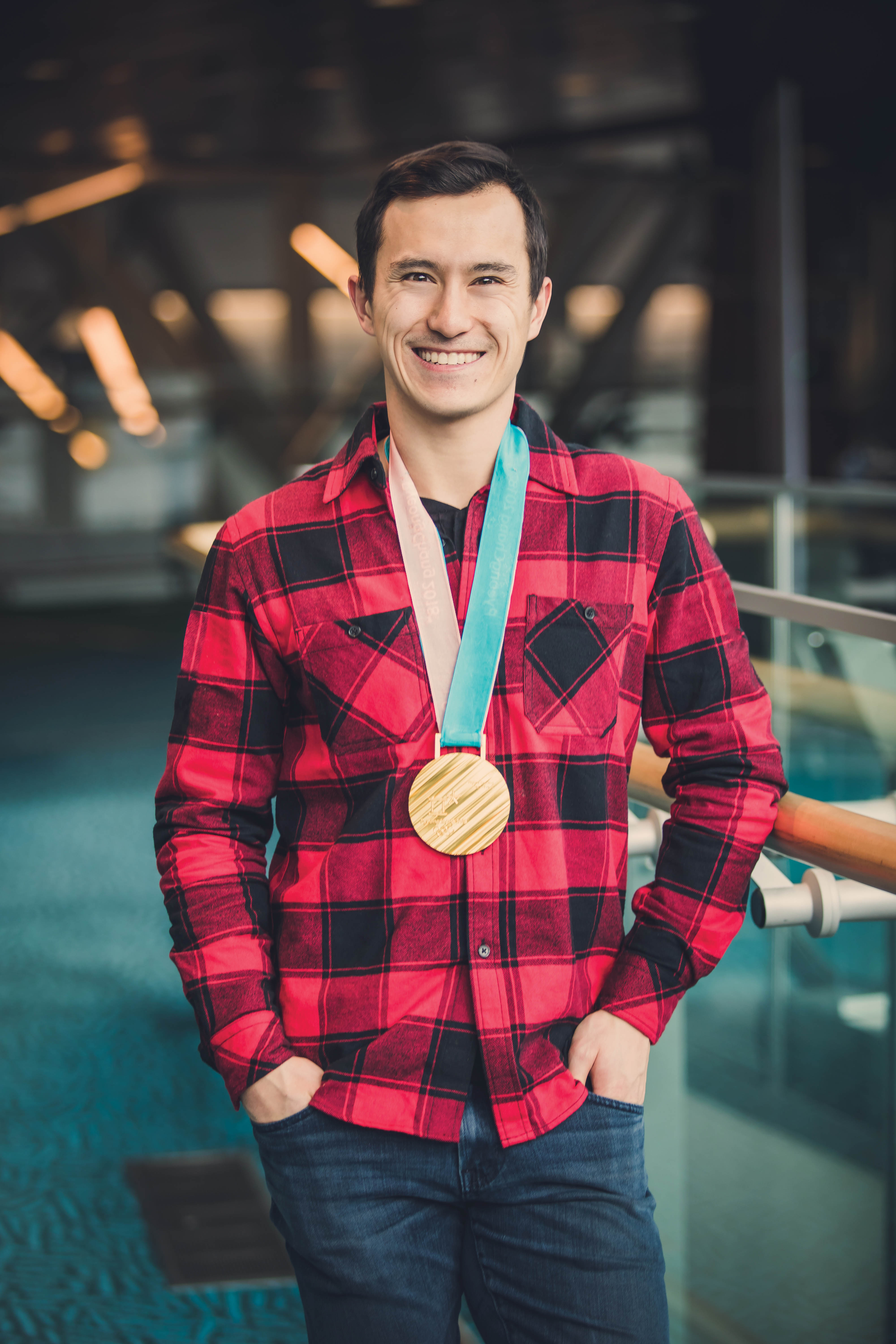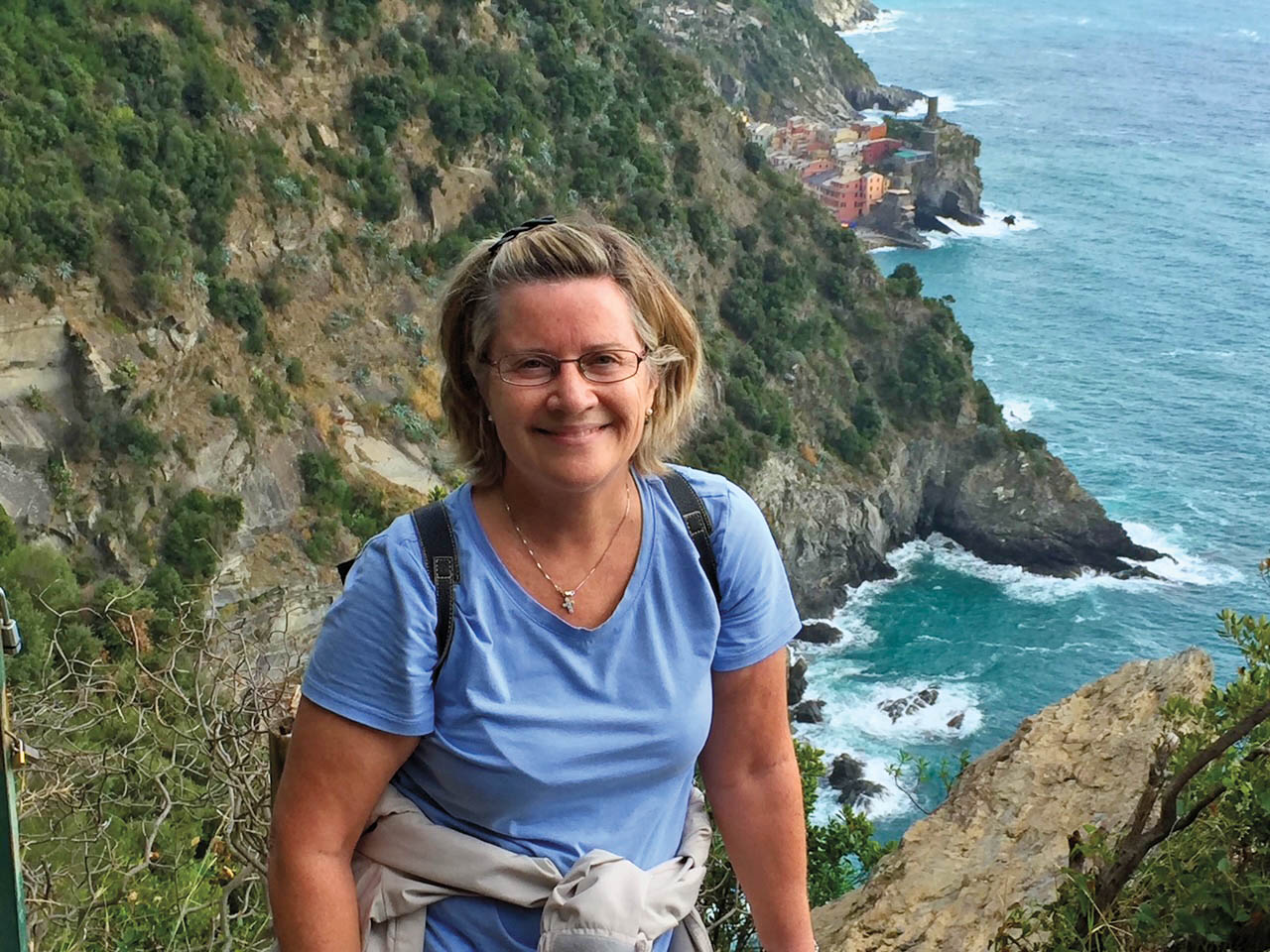Share this page

Canada's most-decorated figure skater, Patrick Chan, credits his high school guidance counsellor with setting him on a winning path.
By Teddy katz
PHOTOS: Kim Bellavance Photographe; Robert Grond
Back when he was in high school, Patrick Chan jokes that his fellow students must have thought he was skipping school and being a troublemaker. In truth, Chan — before he became a household name in the world of figure skating — was missing days and weeks of school to compete at competitions around the world.
"They must have thought I was a bad kid and got kicked out of class. Nobody had any idea what I was doing and never asked about it," says Chan, until they started to see him on TV.
Not long after that, people right across the country started catching on, too. Shortly after high school graduation, Chan, who was 19 at the time, represented Canada at the Vancouver 2010 Olympics. Over the next decade, he became the most decorated male figure skater in Canadian history. Chan was a three-time world champion, won Olympic gold in the team event at the PyeongChang 2018 Olympics, and won a silver in the men's event and another in the team event at the Sochi 2014 Games.
In non-pandemic times, he still travels the world performing in figure skating shows and tours, and when he's not doing those he works in commercial real estate in Vancouver. Chan and his wife also recently had a baby boy.
Looking back, the 30-year-old says none of what he accomplished in sport would have been possible if not for the high school he attended in Toronto, École secondaire Étienne Brûlé, and for a guidance counsellor there who helped set him on his path.
"It is amazing the impact that one person had on me. I can tell you that I wouldn't have reached the success I had if it wasn't for Madame Popiel and that school."
Chan started skating when he was six and competing when he was eight. His parents were both immigrants to Canada and Chan grew up immersed in a bilingual household. As a child, Chan's mother spoke to him in Cantonese, his father in French.
When it came time for high school, the family was looking to enrol him in the francophone school a stone's throw away from the Granite Club, the skating rink in Toronto where he trained. Étienne Brûlé was a mid-size school with an excellent reputation in the dramatic arts, music, sports and science.
Chan and his mother met right off the bat with guidance counsellor Christine Popiel to see whether he'd be able to balance his studies there with his skating. Popiel reassured the Chans that the school had lots of experience on that front with Olympians, hockey players hoping to make the NHL, aspiring actors and singers.
"The school tried to make life a bit easier for athletes, or students who were doing acting work or had other things occupying their lives. The teachers wanted to help these students, who had so much on their plates, have success," Popiel says.
Popiel remembers meeting Chan for the first time, and says his face lit up with what she often told him afterwards was a "Colgate smile."
The two hit it off right away. Chan says, "It was just the casualness of Madame Popiel. She spoke an adolescent lingo. She wasn't intimidating like most of the professors or administration.
"Oh yeah, he's right about me speaking their lingo," Popiel says. "If I needed some student's attention in the hallway because they were doing something they shouldn't be doing, I would yell out, 'Hey, yo'," she adds.

Popiel, who had been a student at the school, became quite an institution as a teacher. Over a 32-year career, she taught many subjects including family studies, science, math, English as a Second Language and Special Ed.
During his high school years, Chan wore two hats. One was the high school student who wasn't the loudest, didn't want to stand out and wanted to be just like all the other kids. The other was the figure skater, who performed in front of crowds, was away a lot and often felt disconnected from his friends.
The pressures were real. Chan says he wasn't an "A" student and was worried about the impact on his grades when he had to increase his training hours and wound up missing the final period of school for more than year.
"Madame Popiel gave me the opportunity. She made it not challenging at all. She was always thinking, how can I give Patrick the best quality education but also the opportunity to pursue his dreams," Chan says.
Popiel says that was the school's way. She assigned other students to be Chan's scribe, just like the school had done in similar circumstances with other students. She worked with Chan to pack his classes into the times when he didn't have to be at the rink. She worked with his teachers to help him reintegrate when he was away for long trips, providing him with packages and the key material he missed.
For his part, Chan says what made Madame Popiel really stand out were the conversations in her office. "There was all that noise outside in the hallways, but then you'd come into her office and it'd be different. She'd ask you 'How are you doing? How can I make things easier for you?' It would be one of the few places where you'd vocalize your thoughts." He adds, "I think in the chaos of high school, sometimes you really don't have anyone you can turn to. Even in skating, I didn't really have that many people I could confide in. Madame Popiel offered a place of comfort where I felt heard."
Listening, in fact, is one of Madame Popiel's biggest strengths. "Ask students how they're doing, then just sit back. You look them in the eyes, and you listen closely, and they tell you so much," she says.
"If I had a piece of advice for any teacher, it's to listen. I know it's really hard. We have so many students, and it can be really hard to stop and listen." But she says it pays huge dividends down the road.
She also had the habit of smiling a lot when she was in the hallways. "You might get a smile back. And when you don't, that might be a non-verbal cue that something's going on that you have to keep an eye on."
This past year and a half, during the pandemic, and during protests against systemic racism, Chan notes people were encouraged to check in with their friends and colleagues and ask how they were doing. That was something instinctual to Madame Popiel that she turned into an art form, many years earlier, he says.
"The people I admire most have a quiet confidence about them: Bill Gates, Roger Federer, Michelle Obama, Warren Buffett. They're not loud, not flashy. Madame Popiel is just like that. She had a quiet impact year after year."
Chan, too, had an impact on the school. École secondaire Étienne Brûlé now gives out an annual sports award in his honour. Engraved on the award is a quote from Chan that reads: "I simply try to be a good person on the ice and in life."
With the time away for competitions, Chan even missed out on his own graduation. Despite that, he says, "I genuinely felt sad when high school ended." He adds, "I wish everybody felt that way about high school. There was something special about it for me. I would go back in a heartbeat."
In this profile, notable Canadians honour the teachers who have made a difference in their lives and have embraced the College's Ethical Standards for the Teaching Profession, which are care, respect, trust and integrity.